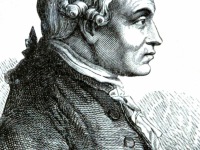Étienne de Condillac and the Importance of Language in Logical Reasoning
On September 30, 1714, French philosopher and epistemologist Étienne Bonnot de Condillac was born. A leading advocate in France of the ideas of John Locke de Condillac further emphasized the importance of language in logical reasoning, stressing the need for a scientifically designed language and for mathematical calculation as its basis.[4] “The art of reasoning is nothing more than a language well arranged.” – Étienne de Condillac, as quoted in [5] Étienne de Condillac…
Read more





